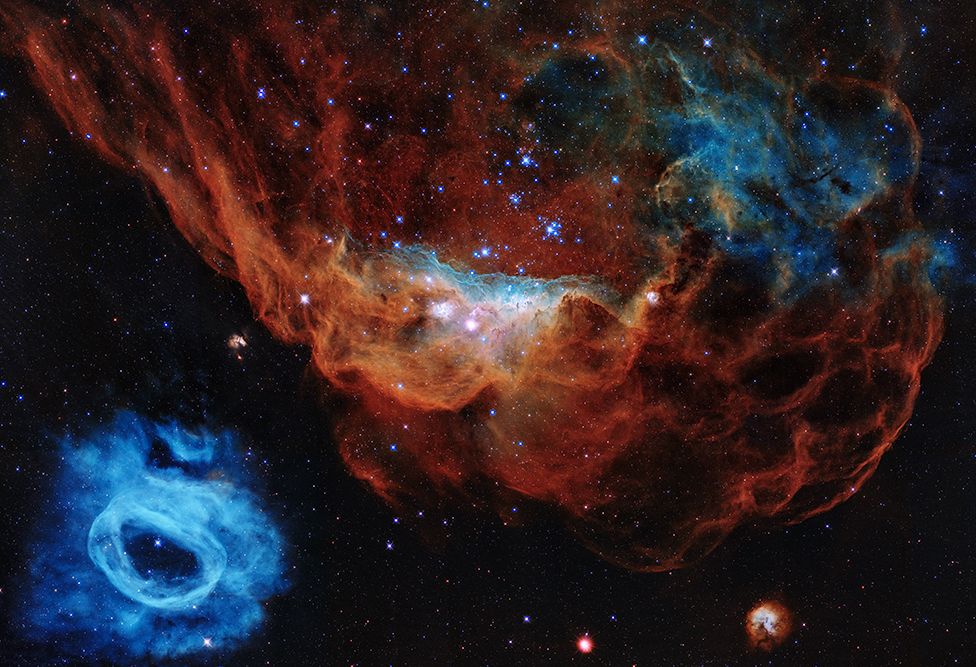Last week, on April 25th, we marked the 30th birthday of the Hubble telescope. Thirty years ago, the Hubble telescope began its mission to observe, photograph and document the universe- what it is, how long it has existed, what it can show us about ourselves. The BBC published an excellent piece on its website where it explained:
It’s a bit of a cliche, but Hubble has truly been a “discovery machine”.
Before the telescope launched in 1990, astronomers didn’t know whether the Universe was 10 billion years old or 20 billion years old.
Hubble’s survey of pulsating stars narrowed the uncertainty, and we now know the age extremely well, at 13.8 billion.
The observatory played a central role in revealing the accelerating expansion of the cosmos – a Nobel Prize-winning breakthrough – and it provided the definitive evidence for the existence of super-massive black holes at the centre of galaxies.
And then there was this magnificent photo:

courtesy of NASA/ESA
At a time when we are so hyper-focused on minutiae, this image seems all the more remarkable. As we sit inside billions of shelters around our planet, first and foremost in our collective minds right now is the power of the smallest of microbes, a germ, a virus. This tiny, invisible speck has ground our planet to a halt and has, in some ways, narrowed our vision down to as small as it can be. And yet, the images provided over thirty years by the Hubble telescope continue to show us how much greater the universe is not only than our planet, but than each of us and now, the virus that threatens us. There have been times over the past few months when I felt as if I had been trapped in a bad science fiction movie. But the Hubble shows us a reality that is even more mind-expanding than our imaginations could have created. For human beings, thirty years is a big birthday. Back in the day, it was the not-so-arbitrary line after which adulthood made you no longer trustworthy. Yet it seems to me that this big birthday for our planet’s discovery machine couldn’t be important or come at a better time. It can give us a perspective which so many of us have lost, and so sorely need, if only we look up.

Recent Comments